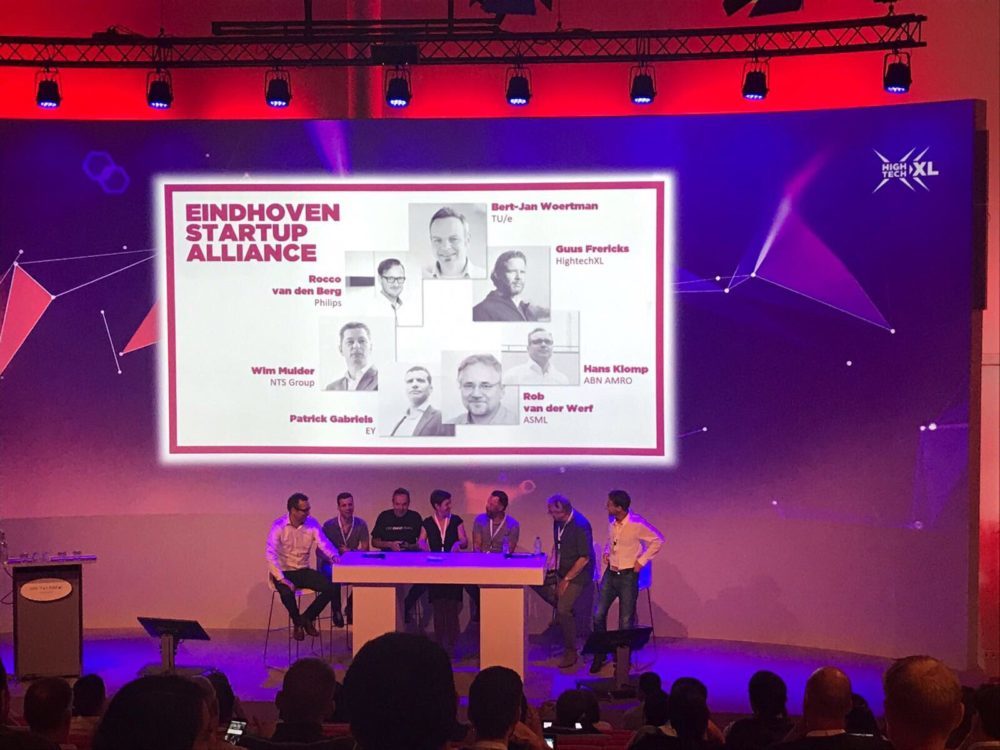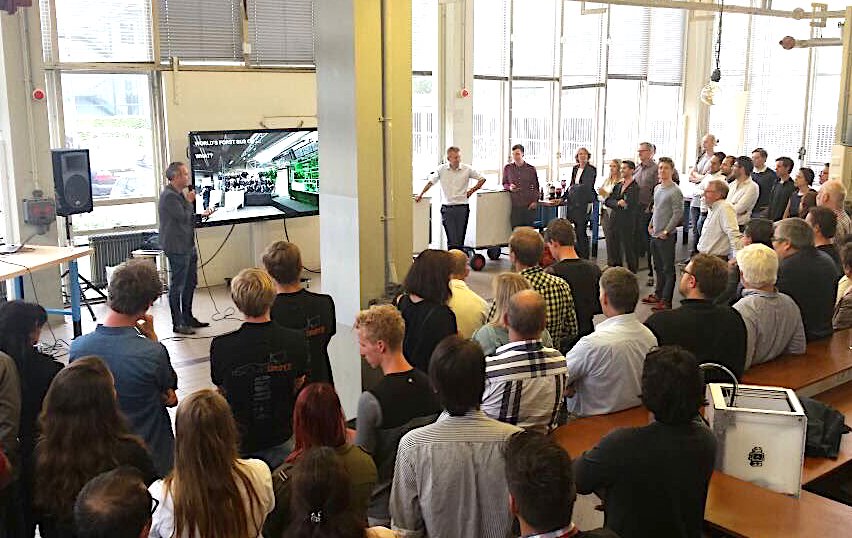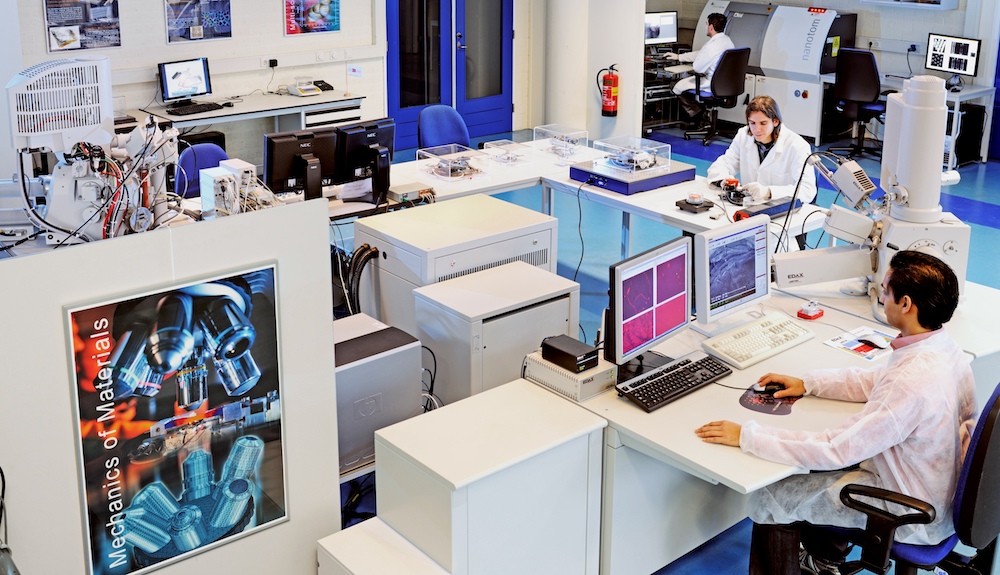While Berlin, London and Stockholm get the publicity, Eindhoven has a strong claim to the title of “Europe’s best-integrated tech ecosystem,” with some of the world’s ultra high-tech companies linked to the technical university.
Now, that ecosystem is moving to the next level as Technical University of Eindhoven and HighTechXL enter into an advanced level of collaboration starting with pitches on 26 March, when university startups will pitch to Dutch high-tech heavyweights such as Philips and ASML.
(We’ll have details as they become available.)
Much like Stanford University in the Silicon Valley model, Eindhoven’s ecosystem depends on TU/e to recruit and shape its tech talent, talent the city, region and all of the Netherlands needs.
One of the bigger 2017 developments in Eindhoven’s startup ecosystem was the announcement last year that TU/e would start sending its startups to the HighTechXL accelerator.
HighTechXL has accelerated 56 startup teams – both Dutch and international (not counting internal corporate teams) – in its 5-year history.

The deal gives TU/e a mechanism to get its startups to market faster while giving HighTechXL access to a program that already has produced winners. It also allows TU/e executives and professors to concentrate on what they say they do best … talent spotting.
TU/e developers see their roles as front-loaded, said Steef Blok, director of TU/e’s innovation lab. “We put all the capacity in the front of the process; scouting, screening, proof of concept, prototype, etc. Then, we need parties who take it over,” Blok said.
“Our vision is that when we put two times more capacity in scouting, we’ll have two times more output,” Blok said.
“The question became, ‘What are we going to do with the output?'”

BERT-JAN WOERTMAN, FRONT, WAS EMCEE FOR A SRO ‘DRINKS & DEMOS’ STARTUP EVENT LAST SUMMER AT TU/E.
And that’s where HighTechXL comes in.
HighTechXL executives have interviewed more than 20 TU/e startups for a new cohort that starts next month.
To get a slot, TU/e teams are up against startup teams from around the world in an expat-friendly ecosystem.
“So let’s see how many get in,” said Bert-Jan Woertman, TU/e commercial director. That competition is good for TU/e “so we can see what the benchmark is internationally. It also makes them better teams being in an international accelerator with teams from all around the world.”
“We’re really happy with the partnership. But I could see that it would be important to success for HighTechXL to be involved earlier,” said Anique Soetermeer-Gabriels, HighTechXL CEO.
The TU/e teams need to get to know HighTechXL’s people and methods earlier “to build trust,” Soetermeer-Gabriels added. “If you get to know someone early, you’re more comfortable working with them later on.”
She suggests more spontaneous and informal events earlier in the process of bringing together the university and the accelerator including monthly pitch events.
TU/e, a force to be reckoned with in Eindhoven’s startup ecosystem
In and of itself, TU/e is a potent force in Eindhoven’s remarkably successful tech scene.
First and foremost, the university has a significant amount of capital it can deploy in the search for top talent and world-changing ideas.
“We have a very big advantage,” Blok said. “We finance our own companies. We have our improved concept fund. We have a pre-seed fund and a seed fund of 84 million euros. So especially in the front of the process – the improved concept and pre-seed – we are able to get the rubbish out of the company.
TU/e also has a massive amount of talent.
In the course of any given day, TU/e professors and researchers see students who have potentially billion-euro ideas, and in the past few years, TU/e has produced some extraordinary startups including Amber Mobility, Usono and BitSensor.
https://youtu.be/USIE198_wWg
Merck Glass, which created “smart” liquid crystal glass technology that can lighten and darken, began at TU/e as Peer+, founded by Casper van Oosten and Teun Wagenaar in 2008, then was sold to Darmstadt, Germany-based Merck in 2015.
TU/e sets up or scales up as many as 70 companies per year. It also has research agreements with some of the Netherlands’ largest companies in research including Philips with the Flagship program.
Other partners include ASML, NXP, KPN, Shell and BrandLoyalty, a loyalty-promotion firm based in ‘s-Hertogenbosch, near Eindhoven.
More than a university, a contributor to Dutch society.
TU/e has its own holding of 50 companies. “It’s not a hobby,” said Steef Blok,” it’s about shareholder value. We want an exit for these companies.”
But as a Dutch university has only one mission – building the Netherlands’ overall economy.
TU/e business developers focus on the early exit model “because we have so many, we can’t manage 100 companies in the holding. We prefer to have ten times 1 million than 1 times 10 million,” Blok said. “The company ‘Netherlands’ has to perform with what we deliver to the society.”
TU/e also is where all the moving pieces connect.
In addition to corporations and HighTechXL, TU/e is cooperating with companies in the medtech sector.
“With the connections we both have, we cover 80 percent of the relevant networks locally, nationally and internationally in the niche domains we’re in – high tech systems, medical robotics, photonics,” Woertman said. “Together, we can open every door business-wise, but also academically worldwide because we’re leading in research and technology. ”
“And we’re also leading in innovation,” Blok said.
Co-CEO of Dispatches Europe. A former military reporter, I'm a serial expat who has lived in France, Turkey, Germany and the Netherlands.















